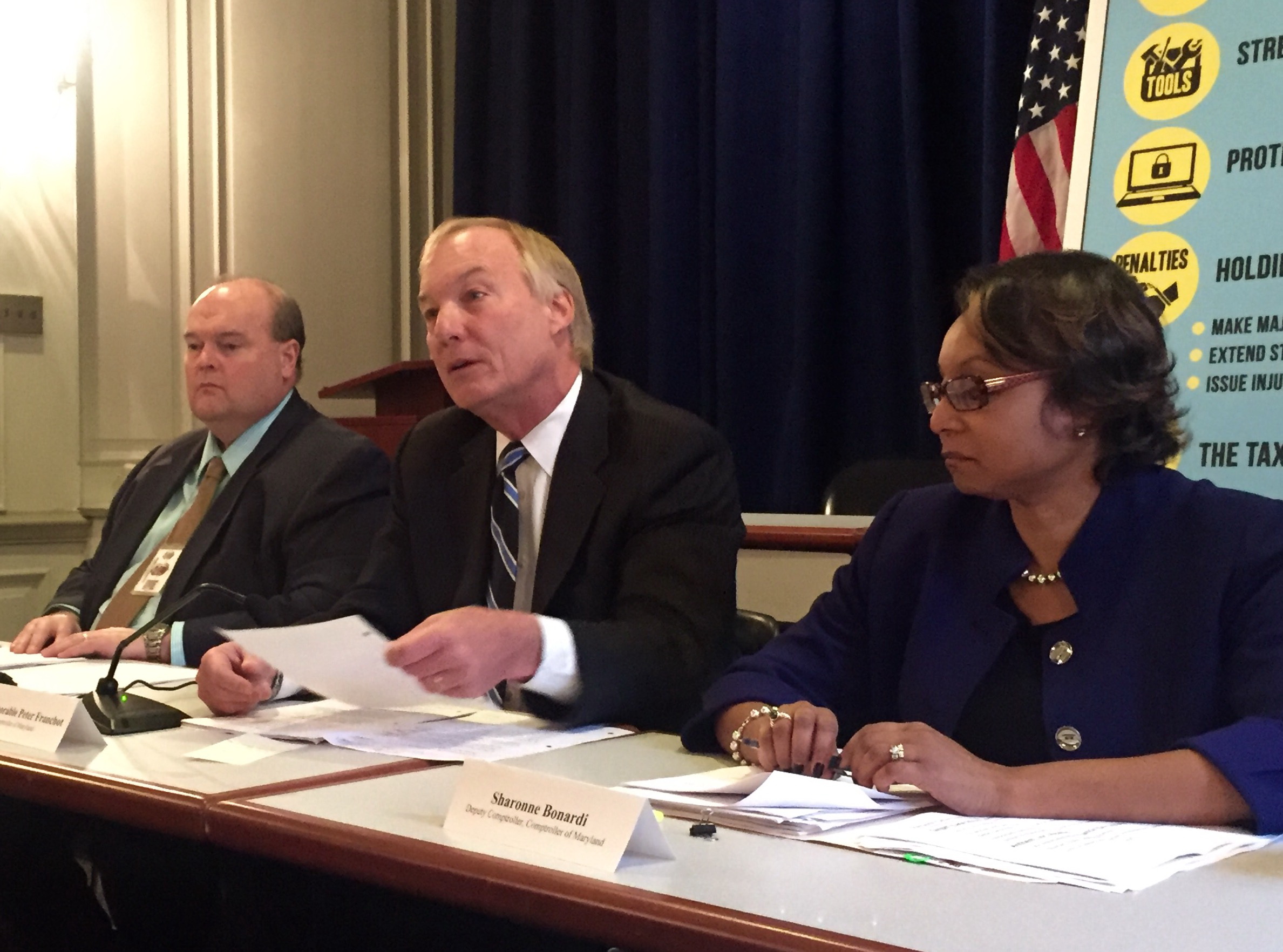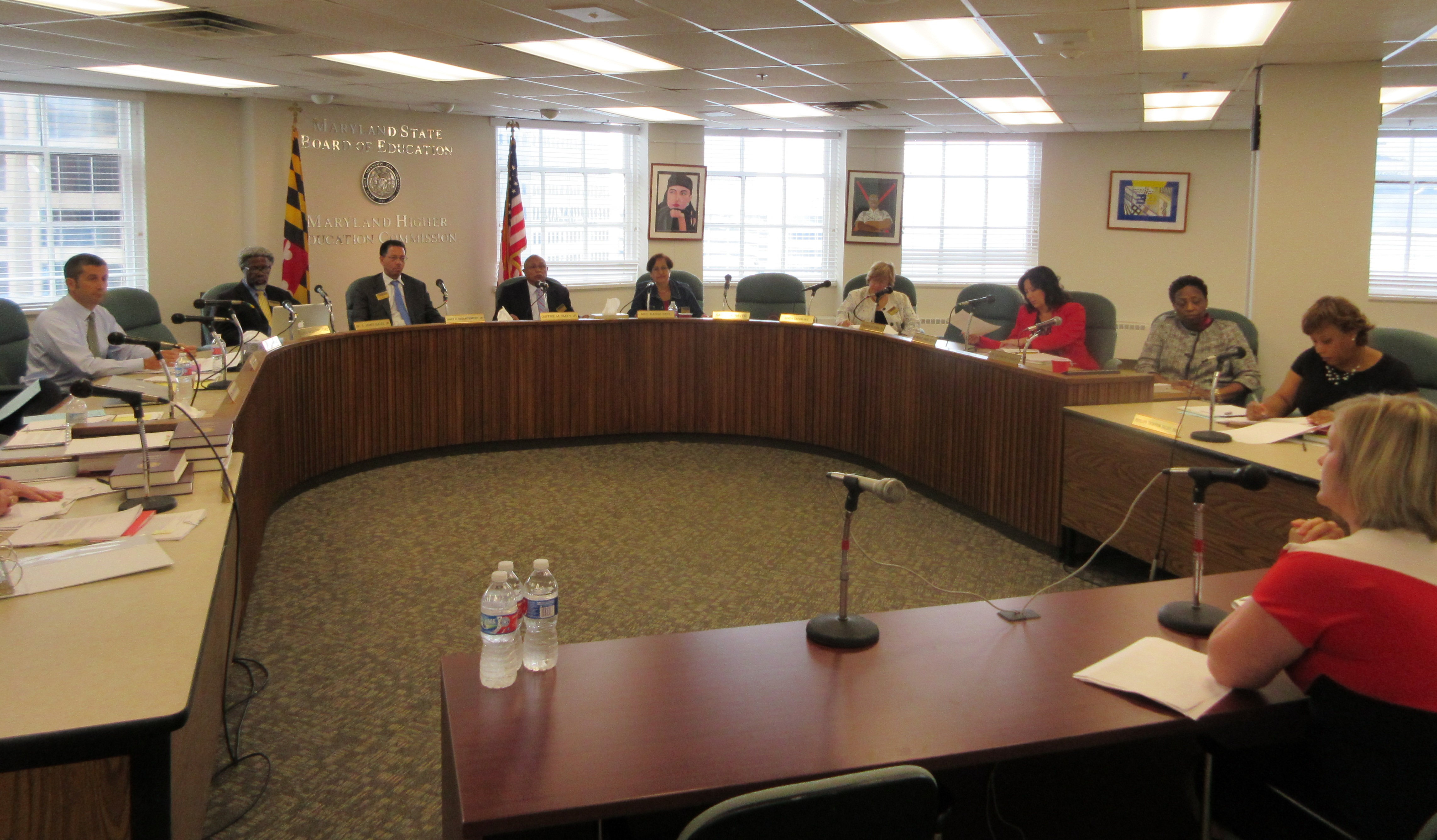By Glynis Kazanjian
Glynis@MarylandReporter.com
Breaking the cycle of isolation for low-income, single mothers is just one benefit of an expanding social services program in Maryland, known as “Healthy Families America.” The program dramatically changed the lives of two Baltimore City mothers, and has likely saved the lives of dozens of infants across the state.
“They were my support, when I thought I couldn’t go on,” said Crystal Whitty, a Baltimore City mother of three enrolled in the program who testified at a hearing in Annapolis this week. “At first I resisted them, but they didn’t tell me what to do. They gave me education and tools. Now I welcome them into my house as family.”
Healthy Families is one of five programs in Maryland that centers on “Evidence-based Home Visiting,” a social services model that has caught the attention of the Obama administration and the Pew Charitable Trusts, which announced last week a state partnership with Maryland through the Pew Center on the States.
The Home Visiting model targets high risk communities, focusing on low-income, single mothers and their families. Healthy Families attempts to teach mothers about the negative effects of premature and low-weight births, infant mortality, including Sudden Infant Death Syndrome (SIDS), while acting as a support unit for the mother.
Collectively, the Home Visiting programs are funded by the federal Temporary Assistance for Needy Families program at $4.6 million per year, but federal funding for the programs could be at risk due to pending budget cuts, according to state officials. The programs are run through the state Department of Education, but are administered at the county level by Local Management Boards which can supplement funding. In 2010, the latest data available, the program serviced 1,744 children state-wide, said Rosemary King-Johnston, executive director of the Governor’s Office for Children.
The Department of Health and Mental Hygiene (DHMH) recently received a $1 million grant for the Home Visiting program through the federal Patient Protection and Affordable Care Act of 2010 (federal health care reform).
Success stories
Ebony Simmons and Crystal Whitty were both low-income, both single parents, both at their wits end.
Simmons said she was home, not working, not doing anything, and had no path for her future. Whitty said she thought she couldn’t go on anymore.
Then, both of their lives turned around – one step at a time, and definitely for the better.
Simmons, at the time, was a single mother of three, with another child on the way, when she picked up a brochure at a school fair. Soon after, she found herself enrolled in the Mondawmin Healthy Families program, based in Baltimore City and serving the Druid Heights, Reservoir Hill, Upton and Mondawmin communities.
She started receiving home visits from Linda, her “family support worker,” who helped her set goals, both personal and professional. During the course of five years, Simmons went back to cosmetology school and got her license. She then re-enrolled in community college and completed an associate degree in fashion design in 2007. By the end of her program, Simmons, now a mother of five, graduated from the University of Baltimore with a bachelor’s degree last May.
Simmons said the program helped her establish a path to begin with and an end for her to create. “It has helped me set goals and objectives for my life and given me the tools to nurture and care for my family. It’s like the famous saying, give a man a fish and he eats for one day, but teach a man to fish and he eats forever,” she said.
She is currently circulating her resume and was honored as a graduate of the Healthy Families program at a reception following Wednesday’s hearing of the Joint Committee on Children, Youth, and Families.
Crystal Whitty, a mother of three, is still enrolled in the program. She said she will cry the day she graduates because the Healthy Families staff has become her family.
Once homeless with no direction to turn, Whitty enrolled in the Healthy Families program. The staff at DRU/Mondawmin first helped her and her children secure a home through an affordable housing program. She then went to school to be become a certified medical assistant. After she completed her schooling, she had no professional experience, so program staff helped her find volunteer opportunities to gain the experience she needed. She now works as certified medical assistant.
Whitty said throughout the program she has been educated in infant development and safety, including SIDS, good health practices, and has been shown how to access community resources.
Both women now regularly volunteer at the program office.
Empowering families
“The program is designed to empower families, and it ties local needs to local resources,” said Libby Doggett, director of the Pew Home Visiting Campaign. As part of the partnership, Pew will provide $100,000 in initial funding, which will be administered by the Maryland Family Network.
At the hearing, the Joint Committee on Children, Youth, and Families got staggering statistics on infant mortality out of Dorchester County and Baltimore City. Both jurisdictions were identified by DHMH through a Maternal, Infant and Early Childhood Home Visiting needs assessment as the top two highest risk communities in Maryland.
In 2009, Dorchester County had a 22% infant mortality rate compared to the state’s overall rate of 6.7%. In 2010, Baltimore City had an 11% infant mortality rate, with 98 infant deaths. Between 2008 and 2010, an average of 115 infants died each year in Baltimore City.
But of the children born in 2010 whose mothers were enrolled in the Healthy Families program in the Adelphi/Langley Park Family Support Center, 17 out of 22 infants had regular birth weights and 90% received immunizations, said Program Director Liliana Janssen-Checa.
DHMH is hoping to receive word later this month about an additional $1.3 million in federal health care funds from the fiscal 2011 budget, and the state has also applied for fiscal 2012 funds.
“It breaks the cycle of isolation and values each families’ uniqueness,” said Janssen-Checa.








What a great program this is, I am so proud of these women who have beaten the odds, and turned their lives around. This program should be in every community in the US. There are many who need a helping hand and want direction in their lives and a better future for their families.
These are great success stories I feel so proud of these women. It would be great if these programs can be established in other communities across the US.